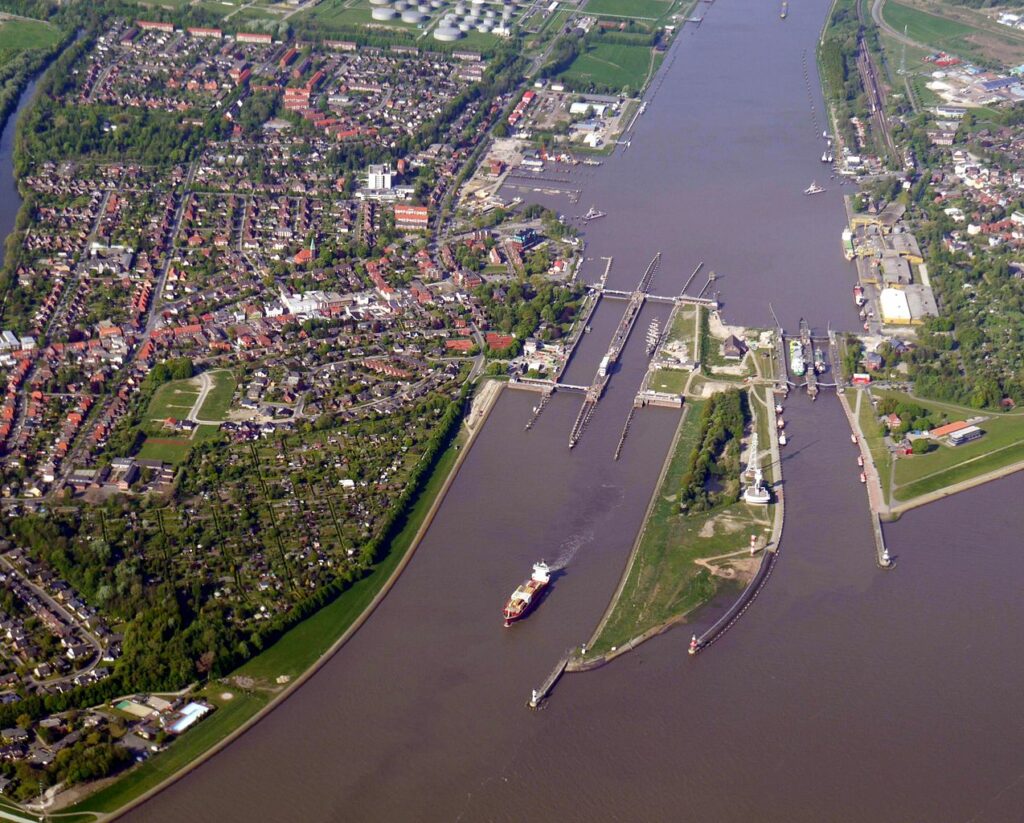In Germany, the expansion of LNG terminals for the import of liquefied natural gas is to be accelerated, but there is a lack of suppliers to replace the imported gas volumes from Russia. The draft law has already been passed and still requires approval by the Bundestag and Bundesrat. The construction of fixed and floating LNG terminals is to proceed more quickly with the law. Authorities are to be able to omit certain steps for a permit, especially when it comes to checking the compatibility for the environment. According to Economics Minister Habeck, the plan makes it clear that citizens’ concerns and environmental protection are subordinate to the goal of getting away from natural gas from Russia as quickly as possible.
Locations for LNG terminals
The LNG Acceleration Act is intended to create the framework conditions for faster independence from gas from Russia. Wilhelmshaven and Brunsbüttel are already set as locations. Michael Kruse has called on Hamburg to become the location for an LNG terminal as quickly as possible in order to prevent the city from falling behind in gas supply for decades.

Image: Nord- Ostseekanal Brünsbüttel UlrichAAB, CC BY 3.0, via Wikimedia Commons
Problematic target clauses
Destination clauses prohibit the resale of delivered natural gas. This is intended to prevent the diversion of gas to other European regions. However, this is provided for by Germany. The promise of Chancellor Olaf Scholz (SPD) is to support the landlocked states within the European Union with gas supplies. According to his statements after the meeting with Czech Prime Minister Petr Fiala, Germany must be prepared to help countries that do not have direct access to the Baltic or North Sea and are dependent on cooperation.
Suppliers preventing the onward transmission of natural gas is not uncommon. For example, Algeria has already threatened Spain to stop deliveries if there is onward transmission of natural gas to Morocco. According to Algeria’s energy minister, contracts may be terminated if natural gas supplied by Algeria reaches a destination other than that stipulated in the contract.
These destination clauses have been a problem for the EU for some time, as the development is towards a fully integrated EU energy market. For this reason, an early supply of LNG from Qatar is unlikely. In the past, Gazprom dropped the clauses after a dispute.
Canada with ambitious climate targets
The Prime Minister of Canada has promised to be a good energy partner to Europe, but not to slacken in the fight against climate change. Canada wants to reduce carbon dioxide emissions by 40 to 45 percent by 2030 compared to 2005. With this goal, it will hardly be possible to supply Europe with energy in the long run. Gas and oil are responsible for about 26 percent of total emissions in Canada.
No agreement between Germany and Qatar
So far, Germany and Qatar have not reached an agreement. This is mainly because Germany does not accept Qatar’s conditions, except for the target clause. On the one hand, this is because of the climate goals and, on the other, because it wants to do without energy imports from Russia as quickly as possible.
As a rule, the term of contracts with Qatar lasts at least 20 years. However, the German government’s ambition is still to reduce CO₂ emissions by at least 88 percent by 2040. With a long-term contract, Germany would have to pay for the gas even if it did not take delivery.
Expensive LNG from the USA
The USA wants to send large quantities of LNG to Europe. Already about 20 per cent of its own production is exported. It is assumed that the quantity could almost double. This has an impact on the price for both Europe and the USA. It is assumed that there could be a 25 per cent increase in the price of consumption in the USA. The displeasure is particularly felt in the industry, as increasing exports could further drive up prices in the USA.
